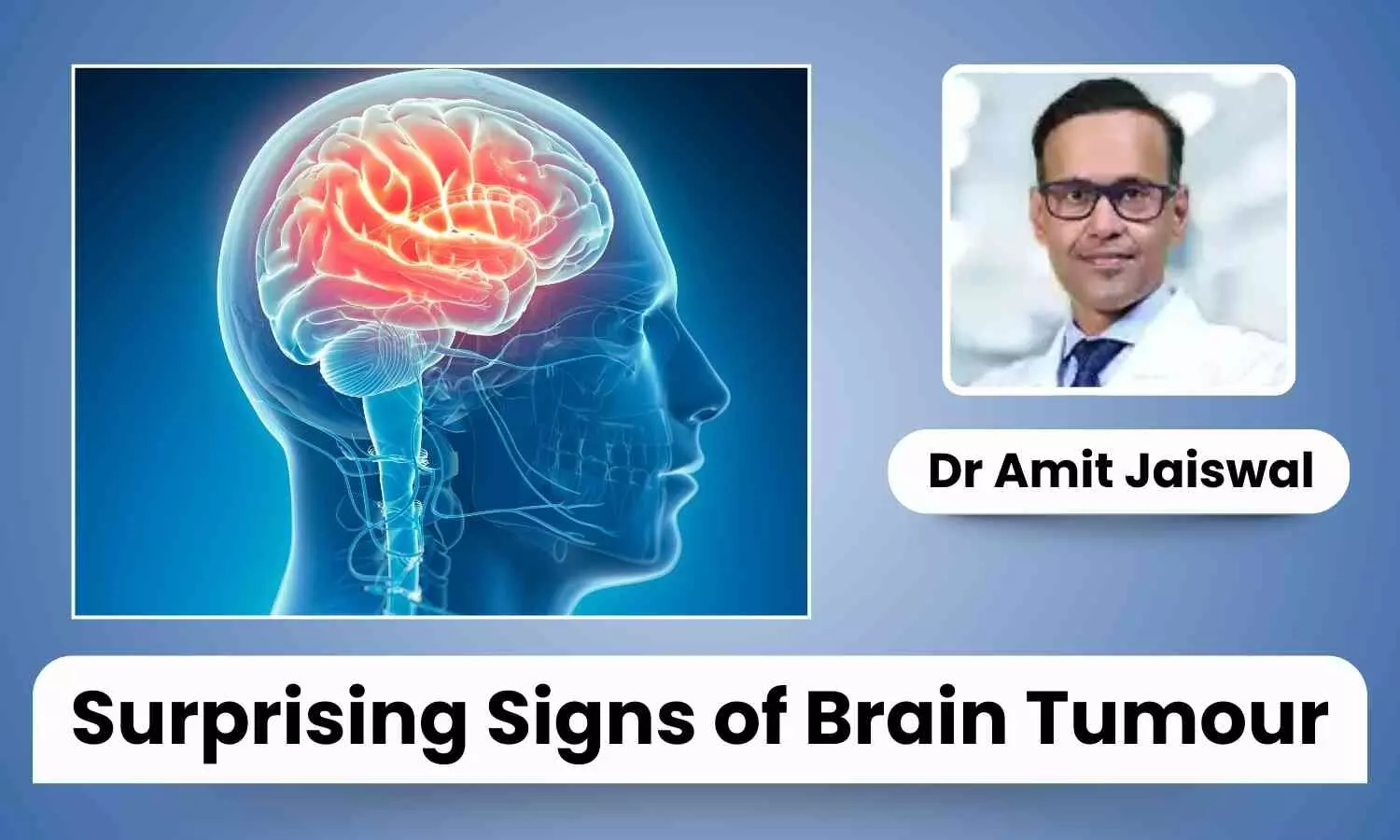Surprising Signs of Brain Tumour Often Overlooked - Dr Amit Jaiswal

Severe headaches or seizures are commonly associated with brain tumours. However, many subtle and somewhat unexpected signs can easily be missed. In reality, early symptom detection leads to prompt diagnosis and, consequently, treatment. Here are a few unexpected ones to be aware of as well:
1. Personality changes
Perhaps the most common symptom of a brain tumour is a change in behaviour or personality. Relatives and friends notice that the responses are unusual, or that the mood may shift or become even more irate.
Such changes are often brought about by the position of tumours that affect the areas of the brain responsible for emotion and personality.
2. Nausea and vomiting that are not explained by cause
A very common symptom for several disorders, nausea and vomiting are sometimes indicative of a cancer in the brain when either they appear or fade in and out, or one cannot identify any apparent reason.
Tumours on the brain increase the cranial pressure, due to which these symptoms that might be mistaken with any abdominal problem most of the time.
3. Disparity in Vision
As normal concerns resulting from age and pressure built up within the eye and the optic nerve. One's vision changes over the time. These symptoms, however, could be serious precursors to a brain tumour. This cannot be left behind.
A person is suddenly experiencing blindness, double vision, or blurry vision in one or both eyes. This occurs when there is a tumour on the optic nerves or in any other part of the brain responsible for visual interpretation.
4. Hearing Problems
One indication that people normally overlook which could imply a person has some form of cancer is a tinnitus, or ear ringing accompanied by issues of hearing.
Hearing might be due to how a tumour may access and impact any part within the pathway for hearing; as soon as there is this alteration or ringing within the one or both ears, the patient will likely demand follow-up tests.
5. Cognitive Changes
Confusion, memory problems, or difficulty focusing may also indicate a brain tumour. Milder cognitive impairments could be failure to understand what people say or inability to recall names. Such changes may later become more prominent and affect life and work.
6. Seizures
Many associate the illness with having a brain tumour, though even when seemingly unrelated and with most people unprepared, a seizure can occur. Any adult who has never had seizures before must have a doctor check them.
Although some types of seizures are mild, presenting almost like episodes where a person undergoes abnormal feelings or behaviour, full-blown seizures cause the person to experience full-blown convulsions.
7. Fatigue
A chronic symptom is fatigue, especially if not relieved by rest. Sometimes, cancer can drain all the energy from the body, leaving nothing else but feeling tired all the time. Such symptoms are easily overlooked because they are misinterpreted as stress or overworked lifestyles.
8. Dizziness or Coordination Problems
Instability or coordination may be impaired because a tumour interferes with parts of the brain controlling motor functions. Patients may experience instability and may not be able to do things that require fine motor skills.
Gradual onset symptoms that some patients may experience can be mistaken for symptoms of ageing or mild clumsiness.
9. Sleep Disturbances
Excessive sleepiness or insomnia could be an indication of a problem with the brain. The functioning of normal sleep patterns is interfered with by a tumour. Such issues might include difficulty in sleeping and staying awake during the day. It is very essential to seek medical care when sleep problems persist.
10. Headaches
Headaches vary greatly in nature and intensity, although most people associate them with a brain tumour. It is impossible to disregard an alteration in the type of headache-for instance, greater severity or other symptoms.
Some of the first steps in the prevention of brain tumours and early treatment include recognizing such unusual symptoms. If you or someone else has been exposed to such symptoms, you should see a healthcare provider to confirm them.
Results and quality of life would be the difference between an early diagnosis and anything else. Your health depends on you being aware of it and being vigilant in preventing such illnesses.


